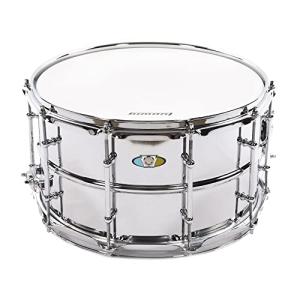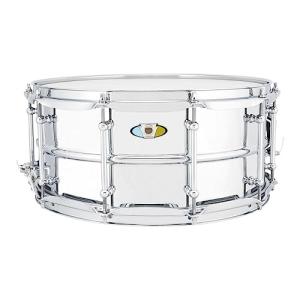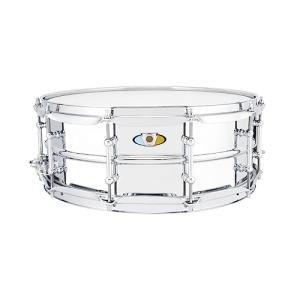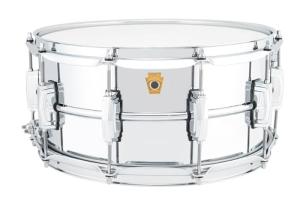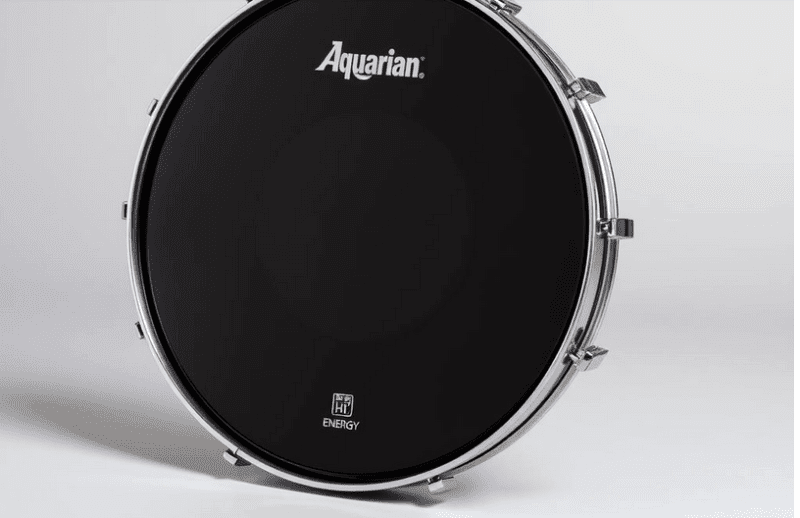Introduction
Are you a passionate drummer who cherishes their cymbals? If so, you know how important it is to properly care for and preserve these essential instruments. In this comprehensive guide, we'll explore expert tips and best practices for safely storing and maintaining your precious cymbals.
From preventing corrosion to ensuring optimal sound quality, our tips will help you extend the lifespan of your cymbals and enhance your overall playing experience. Discover the dos and don'ts of cymbal care, including storage options, cleaning techniques, and maintenance routines.
Whether you're a beginner or a seasoned professional, our easy-to-follow advice will assist you in protecting your cymbals from damage and maintaining their pristine condition. Don't let negligence diminish the splendor of your beloved instruments – unlock the secrets of proper cymbal care and keep them shining and sounding their best.
Join us as we delve into the world of cymbal care and provide you with the knowledge you need to keep your prized possessions in top-notch shape. Let's elevate your drumming journey with our expert tips and techniques.
Importance of Proper Cymbal Storage
Proper cymbal storage is crucial for maintaining the quality and longevity of your instruments. Storing cymbals incorrectly can lead to scratches, cracks, or other damage that can affect their sound and performance. When not in use, cymbals should be stored in a cool, dry place away from direct sunlight and extreme temperatures.
Avoid stacking cymbals on top of each other without any protection, as this can cause metal-on-metal contact that may result in unwanted marks or dents. Investing in a cymbal bag or case with individual compartments can provide a cushioned and secure environment for each cymbal, preventing them from rubbing against each other during storage.
By prioritizing proper storage techniques, you can safeguard your cymbals against unnecessary wear and tear, ensuring they remain in pristine condition for years to come.
Common Mistakes to Avoid When Storing Cymbals
One of the most common mistakes drummers make when storing cymbals is leaving them exposed to moisture or humidity. Moisture can lead to corrosion and tarnishing of the cymbal's surface, affecting both its appearance and sound quality. Additionally, storing cymbals in a cluttered or overcrowded space increases the risk of accidental damage caused by items falling onto them.
Another mistake to avoid is using improper materials for cymbal storage, such as plastic bags or low-quality cases that offer minimal protection. These subpar storage solutions can leave cymbals vulnerable to scratches, dents, and other forms of damage. It's essential to invest in high-quality storage options specifically designed for cymbals to ensure their safety and preservation.
By steering clear of these common mistakes and adopting proper storage practices, you can maintain the integrity of your cymbals and enjoy consistent performance every time you play.
Choosing the Right Storage Case or Bag
When selecting a storage case or bag for your cymbals, consider factors such as size, material, and padding to ensure optimal protection. Look for cases with sturdy construction and ample padding to cushion the cymbals and absorb any impact during storage or transport. Soft fleece lining inside the compartments can help prevent scratches and maintain the cymbals' finish.
Additionally, choose a case that provides individual slots or dividers for each cymbal to prevent them from touching and potentially causing damage. Adjustable straps or handles on the case can make it easier to carry your cymbals securely, whether you're heading to a gig or simply storing them at home. Opt for a case with a reliable zipper closure to keep your cymbals safely enclosed.
By investing in a high-quality storage case or bag that meets your specific needs, you can ensure that your cymbals are well-protected and preserved for long-term use.
Cleaning and Maintaining Cymbals
Regular cleaning and maintenance are essential for preserving the appearance and sound quality of your cymbals. To clean your cymbals, start by removing any dirt or dust using a soft, non-abrasive cloth. Avoid using harsh chemicals or abrasive cleaners, as they can damage the cymbal's finish and affect its sound.
For more stubborn dirt or fingerprints, you can use a specialized cymbal cleaner recommended by the manufacturer. Apply the cleaner sparingly and in a circular motion, following the natural grooves of the cymbal. Once cleaned, be sure to thoroughly dry the cymbal with a clean cloth to prevent water spots or streaks.
In addition to regular cleaning, it's important to inspect your cymbals for any signs of wear, cracks, or keyholing. Addressing these issues promptly can prevent further damage and prolong the lifespan of your cymbals. By incorporating cleaning and maintenance into your regular drumming routine, you can keep your cymbals looking and sounding their best.
Transporting your cymbals safely is essential to prevent them from getting scratched, dented, or cracked while on the move. Whether you're heading to a gig, rehearsal, or studio session, taking precautions during transport can help maintain the integrity of your cymbals. Start by securing your cymbals in a padded case or bag designed for transportation.
When packing your cymbals, place them individually in their designated compartments to prevent them from shifting or bumping into each other during transit. Fill any empty spaces in the case with padding or cloth to avoid excessive movement. Avoid stacking heavy items on top of your cymbal case to prevent crushing or damaging the cymbals inside.
If you're traveling by car, ensure that the cymbal case is securely fastened to prevent it from sliding around or tipping over. For air travel, consider investing in a durable and TSA-approved cymbal case that can withstand the rigors of baggage handling. By taking these precautions, you can protect your cymbals from damage and ensure they arrive safely at their destination.
Tips for Preserving Cymbal Quality and Sound
To preserve the quality and sound of your cymbals, consider the following tips and techniques. First, avoid playing your cymbals excessively hard, as this can lead to premature cracking or keyholing. Practice proper cymbal technique by striking them with the right amount of force and using appropriate drumsticks or mallets.
Furthermore, rotate your cymbals regularly during practice sessions and performances to distribute the wear evenly across all cymbals. This can help prevent overuse of specific cymbals and extend their lifespan. When not in use, cover your cymbals with cloth or protective sleeves to shield them from dust and debris.
Lastly, be mindful of the environment in which you play your cymbals. Avoid exposing them to extreme temperatures, direct sunlight, or high humidity, as these conditions can impact their sound and durability. By following these tips for preserving cymbal quality and sound, you can enjoy consistent performance and longevity from your beloved instruments.
Cymbal Care for Different Types of Cymbals (Crash, Ride, Hi-Hat)
Each type of cymbal – whether it's a crash, ride, or hi-hat – requires specific care and maintenance to ensure optimal performance. Crash cymbals, known for their explosive sound and quick decay, should be struck with controlled intensity to avoid excessive vibrations that can lead to cracks.
Ride cymbals, designed for rhythmic patterns and sustained sound, benefit from regular cleaning to maintain their clear tone and definition. Use a designated ride cymbal cleaner to remove dirt and fingerprints without compromising the cymbal's intricate hammering patterns. Hi-hat cymbals, crucial for keeping time and providing crisp articulation, should be cleaned and stored with care to preserve their clarity and responsiveness.
By understanding the unique characteristics of each cymbal type and tailoring your care routine accordingly, you can ensure that your crash, ride, and hi-hat cymbals deliver the performance quality you desire.
When it comes to caring for your cymbals, using the right products and tools can make a significant difference in maintaining their appearance and sound quality. Invest in a high-quality cymbal cleaner that is specifically formulated to remove dirt and grime without damaging the cymbal's finish.
Microfiber cloths are ideal for gentle cleaning and polishing of cymbals, as they are soft and non-abrasive. Avoid using abrasive materials such as steel wool or harsh chemicals, as they can scratch the cymbal's surface and compromise its sound. Consider purchasing cymbal sleeves or covers to protect your cymbals from dust, moisture, and accidental damage when not in use.
Additionally, a cymbal stand with felt or rubber padding can help reduce metal-on-metal contact and minimize the risk of scratches during prolonged use. By investing in quality cymbal care products and tools, you can maintain the beauty and integrity of your cymbals for years to come.
Conclusion: Taking Care of Your Cymbals for Long-Lasting Performance
In conclusion, proper cymbal care is essential for preserving the quality, appearance, and sound of your precious instruments. By following expert tips for safe storage, cleaning, maintenance, and transport, you can extend the lifespan of your cymbals and enhance your overall drumming experience.
Remember to avoid common storage mistakes, choose the right storage case or bag, and use recommended cymbal care products and tools to keep your cymbals in pristine condition. Whether you play crash, ride, or hi-hat cymbals, tailor your care routine to each type to ensure consistent performance and longevity.
By incorporating these best practices into your drumming routine, you can protect your cymbals from damage, maintain their luster and sound quality, and enjoy playing on instruments that are well-cared for and cherished. Elevate your drumming journey with proper cymbal care and let your passion for music shine through your beautifully preserved cymbals.
